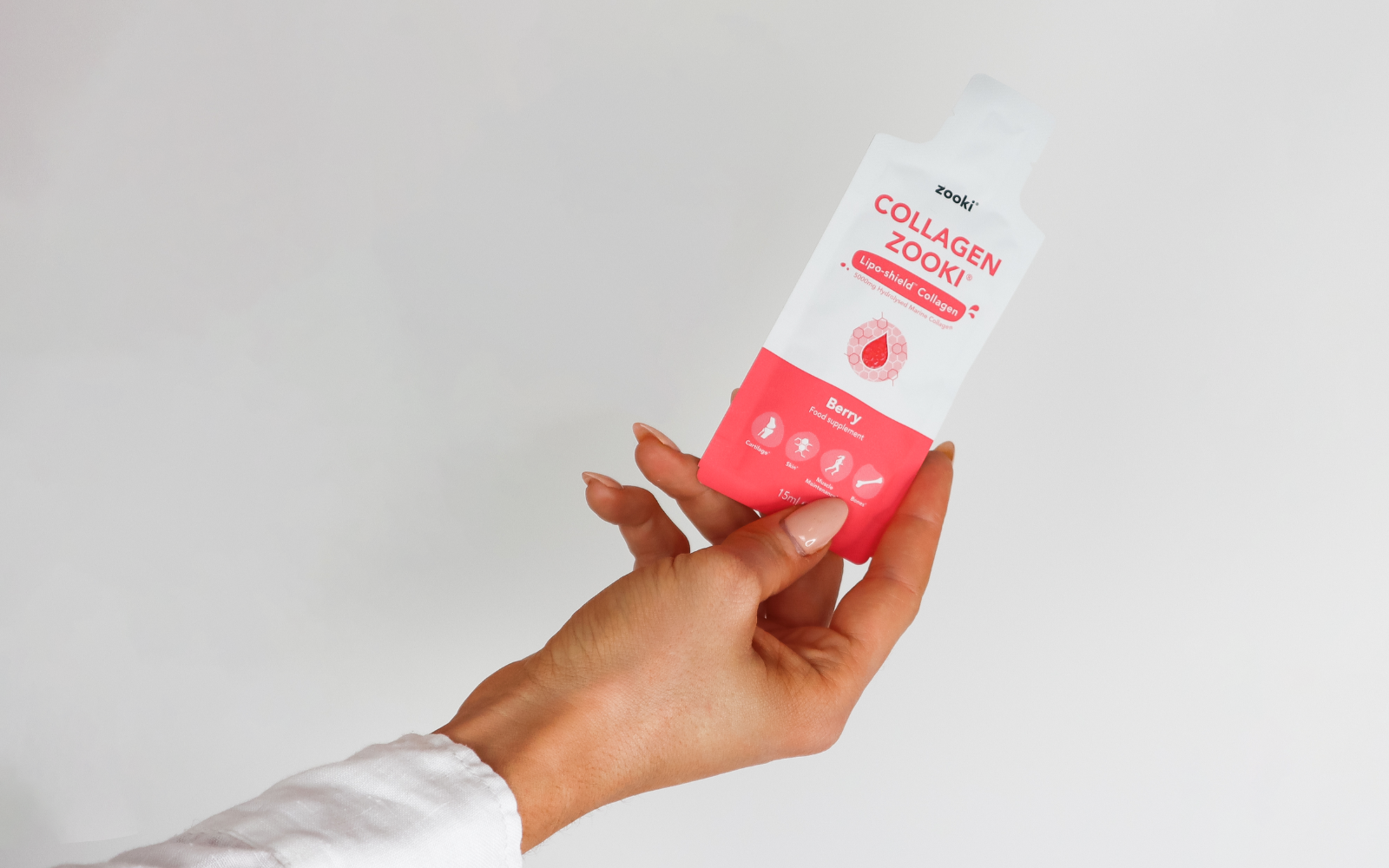By the time we finish menopause, the amount of Collagen we produce has declined by up to 60 or 70%. That means we are trying to maintain the structure of our bodies with only one third of the collagen we originally had. And even though we’re focussing on the menopause, it’s not just about women. Men also suffer the same loss of Collagen production, which is why they find it harder to maintain muscle strength and skin tone through their 50s and 60s.
All this starts to explain why I feel strongly that a good Collagen supplement is essential before, during and after menopause. It’s not just about trying to look younger; it’s actually about protecting your body and maintaining your strength as you age.
Collagen and menopause: What's the connection?
1. Collagen supports and strengthens the joints & bones during menopause
There’s a reason why menopausal women are the key demographic for tendon injuries - Achilles heel tears, rotator cuff and tennis elbow can all be debilitating problems for ladies in their 50s as the falling oestrogen levels impact the amount of Collagen taken up by the tendons and bones, causing weakness. At an age when women should be embracing consistent exercise as a way to ensure strength and flexibility, frequent tendon and ligament injuries can prevent and dissuade them from training. However, taking a good liquid Collagen supplement can support the tendons, joints and bones and mean you'll feel more confident exercising with less chance of injury.
2. Collagen improves skin health, fine lines and wrinkles
One of the side effects of losing collagen as you age is developing more fine lines and wrinkles. Collagen supplements can support your skin through the process and have been proven to reduce the appearance of fine lines and wrinkles, improve elasticity and skin plumpness.
When Collagen and Vitamin C are taken as supplements, they trigger the body’s own production of Collagen and hyaluronic acid. The essential amino acid peptides in the Collagen itself can also be reconstituted by the body to form collagen fibrils, enhancing the effect on collagen levels.
3. Collagen increases lean muscle growth during menopause
Roughly 10% of your muscle tissue is made up of Collagen, but if you're not producing enough (which is very likely with age!), your body will prioritise other organs and your muscles will suffer.
Alongside regular exercise and a balanced diet, Collagen supplements can help keep your muscles strong and healthy!
4. Collagen aids gut health, weight management and hormonal balance
The fall of Collagen during menopause along with the decrease in oestrogen can have a double whammy on the gut as the lining of the gut is weakened alongside the colony of microorganisms in the gut known as the microbiome. Evidence suggests that the diversity of these beneficial bacteria starts to fall as we age; meaning we find it harder to digest foods and extract nutrients and become more susceptible to food intolerances as the gut wall weakens.
Collagen supplementation can help support both the gut lining and mitigate the effects of declining oestrogen. It may even help with decreasing the amount of weight put on during menopause because it reduces the oestrogen deficiency driven weight gain.
Collagen is responsible for a lot more than just looking more youthful. But that’s also an added benefit. There’s nothing better you can do for the fine lines, wrinkles and visible signs of ageing that may appear as you transition through menopause. But when you take Collagen consistently and start to notice the effects on your face and skin, you will be glad to know that it’s working just as hard on the inside of the body.
The best Collagen supplements for menopause
Firstly, you'll want a Collagen supplement you can actually absorb. Collagen is a very large molecule, which is why we break it down into hydrolysed marine collagen peptides that are small enough to be absorbed in the gut. We also use marine collagen as it's mostly type 1 collagen. Type 1 collagen is the most abundant collagen type in your body, especially where you'd want to see improvements during menopause, like the skin and joints.
Finally, you'll want to make sure the dose is high enough to make a difference. Our liquid Marine Collagen supplement contains a whopping 5000mg of Collagen, plus 100mg added Vitamin C to aid Collagen formation. Learn more here.
References
1. Tendon healing: Can it be optimised?
3. Amelioration of estrogen deficiency-induced obesity by collagen hydrolysate






Share:
Can collagen help with wrinkles and fine lines?
What are the best vitamins for the immune system?